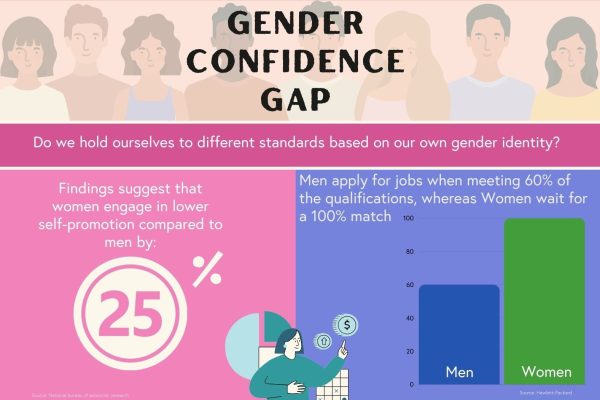Challenging your clients: Get “That’s fair enough” not “That’s far enough”
4 min read
When someone offers us a point of view that challenges our perception of our own ‘self’, the most common response is to become defensive and dismissive.
As consultants and professional advisors, you shouldn’t expect your clients’ (or prospective clients’) reactions to be any different.
But offering a challenging point of view is a key determinant of the value you bring to a relationship and helping a client see a new opportunity or approach can be integral to their future development and growth prospects.
So how do consultants offer clients a challenging but necessary point of view and still be heard? By ‘earning the right’…
In your career, you will likely have experienced the following situation:
You’re at an event when you meet someone you don’t really know and haven’t met before. You exchange pleasantries and a few details of your firm’s plans for the coming months when, rather unexpectedly, the individual you are talking to identifies himself as an ‘expert’ in your field of work and offers the following response:
“Who came up with that!? I don’t think that’s a good idea. In my opinion, this is what you should do…”
At this point, you have two options.
Option 1: “That’s fair enough”
You listen intently to the advice, make some mental notes and exchange contact details so you can follow up for more information.
Option 2: “That’s far enough”
You become slightly defensive, verging on the angry. Affronted, you ask yourself: “Who is this person to question my efforts, my judgment and to belittle what I have spent significant time developing? What right does this ‘expert’ have to say this to me!?”
You mentally ‘switch off’ and stop listening, your eyes scanning for an escape route.
Even though the advice might be completely valid and the individual offering the opinion eminently qualified to offer such a view, you simply stop listening, make your excuses, politely disengage from the conversation and walk away.
Which option would you choose? Tell me more, or walk away?
If you decided Option 2, research suggests you would be in the majority.
Studies have shown that people tend to move away from those who provide feedback that is more negative than their own view of themselves – also called ‘disconfirming’ feedback.
When ‘disconfirming’ feedback threatens someone’s views of their own knowledge, judgement, skills and accomplishments, they will likely stop listening and interacting altogether.
Herein lies the conundrum for consultants.
As a consultant, the value you bring is based on your ability to offer a point of view that challenges the client’s thinking, identifies an unforeseen risk, uncovers a blind spot or offers fresh insight.
Making a client aware of potential weaknesses and limitations, despite their reticence, is often vital to their firm’s development and should therefore be a key objective for any consultant.
Yet, when offered a challenging point of view, clients are likely to feel threatened, stop listening and dismiss the advice.
Most of your clients would also choose Option 2 – “That’s far enough”
So, how do you offer a challenging point of view without pushing the client away? How do you give yourself the best chance that the client will think “That’s fair enough” rather than “That’s far enough”?
Earn the right
The answer is to earn the right to deliver your point of view by taking time to understand your client’s context and situation. This is done by asking many questions and listening carefully to the answers.
You can also ‘earn the right’ by framing your point of view. This can be done by offering proof of your credibility and illustrating your subject expertise through relevant stories, examples and previous experiences.
Having taking the time to understand your client’s context, proved your credibility and checked you have correctly framed the client’s situation, you should then explore the situation as equals, neutralising any inclination to be judgmental.
Reasonably, people tend to strengthen their bonds with those who emphasise their positive qualities. It is crucial, therefore, that rather than being perceived as a threat, your point of view enables the client to envision a better version of themselves and their organisation.
By creating an atmosphere of mutual trust and respect, and by approaching the interaction as a partnership of equals, the client is far more likely to think “this person understands me, and he gets the situation we are facing” and crucially, will likely want to engage further and introduce you to additional stakeholders.
Finally, your point of view should focus on offering something of value – not just your opinion. If possible, use research, examples, data and facts to back up your view.
As the well-known American management consultant, engineer and ‘The Father of the Quality Evolution’ W. Edwards Deming famously said:
“Without data, you’re just another person with an opinion.”
The problem with entitled consultants
Unfortunately, as illustrated in the scenario above, points of view are often offered by consultants or ‘experts’ driven by an overriding sense of entitlement.
Such overconfidence is usually based on a job title, a firm’s brand name, or an overreliance on past accomplishments. Entitled consultants often have an overwhelming sense that their point of view will be met with agreement, gratitude and adulation.
Such confidence can be misplaced.
Rarely do ‘entitled consultants’ consider how their thoughts might be perceived by the client and seldom do they take the time to correctly frame the client’s situation.
As a result, while their point of view might be valid, the likelihood is it will challenge, judge or threaten the person receiving the advice, and they will become defensive and push the consultant away.
By earning the right to give a point of view, your client’s reaction couldn’t be more different – they are far more likely to listen, trust your ability, accept your perspective and continue the conversation.
Offering a challenging point of view is a significant part of a the value a consultant brings to a client relationship.
Indeed, consultants would be failing in their professional duty if they didn’t offer a new perspective that could lead to organisational development and improvement. But with this responsibility comes an inherent risk that you will be pushed away and psychology dictates that the odds are not in your favour.
As Karl Popper once said:
“There is an almost universal tendency, perhaps an inborn tendency, to suspect the good faith of a man who holds opinions that differ from our own opinions…”
However, if you earn the right to offer a point of view, then deliver your perspective as an equal, with humility, in a way that adds value and with a clear understanding of the client’s situation and context, they are far more likely to say: “That’s fair enough” and ask for more information than “That’s far enough” and start scanning for an escape route.



